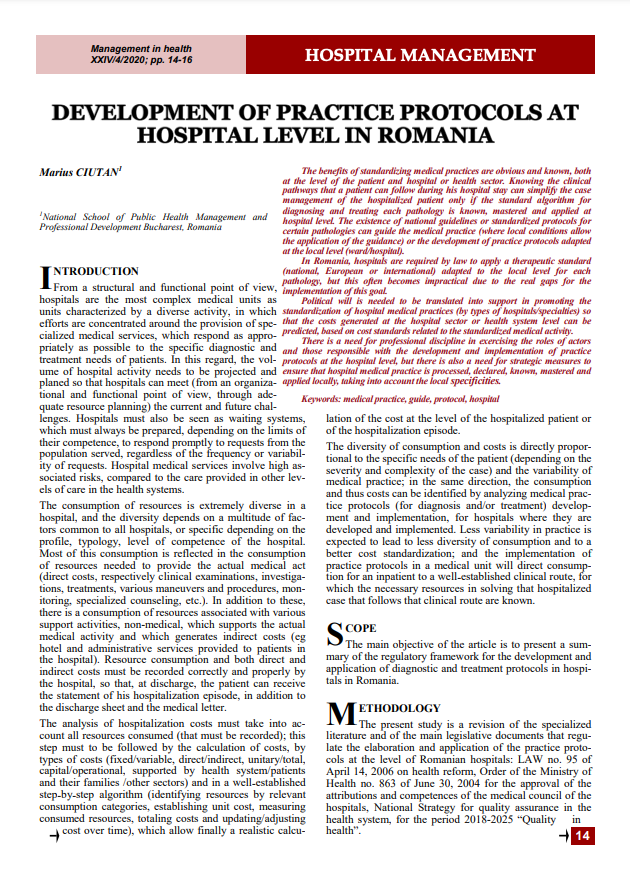Abstract
The benefits of standardizing medical practices are obvious and known, both at the level of the patient and hospital or health sector. Knowing the clinical pathways that a patient can follow during his hospital stay can simplify the case management of the hospitalized patient only if the standard algorithm for diagnosing and treating each pathology is known, mastered and applied at hospital level. The existence of national guidelines or standardized protocols for certain pathologies can guide the medical practice (where local conditions allow the application of the guidance) or the development of practice protocols adapted at the local level (ward/hospital).
In Romania, hospitals are required by law to apply a therapeutic standard (national, European or international) adapted to the local level for each pathology, but this often becomes impractical due to the real gaps for the implementation of this goal.
Political will is needed to be translated into support in promoting the standardization of hospital medical practices (by types of hospitals/specialties) so that the costs generated at the hospital sector or health system level can be predicted, based on cost standards related to the standardized medical activity.
There is a need for professional discipline in exercising the roles of actors and those responsible with the development and implementation of practice protocols at the hospital level, but there is also a need for strategic measures to ensure that hospital medical practice is processed, declared, known, mastered and applied locally, taking into account the local specificities.

